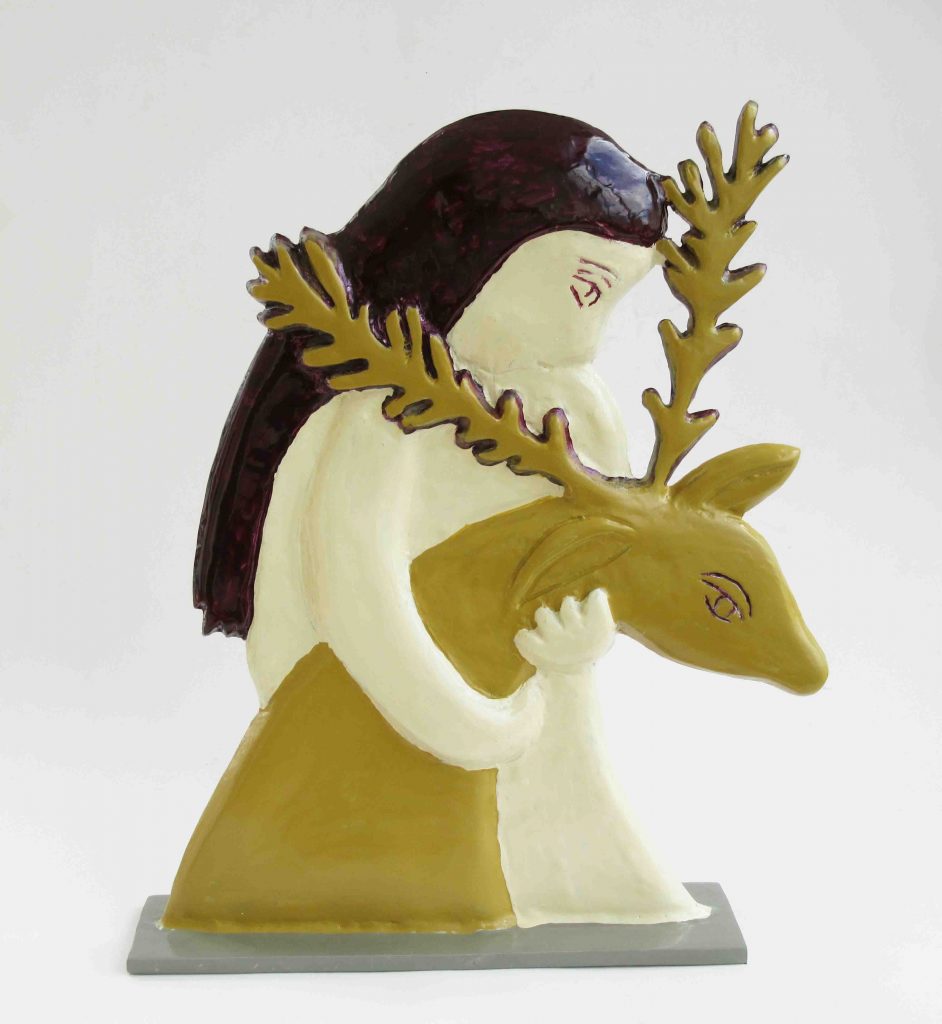
And all the birds were in my garden
and all the beasts were in my garden
and all of them sang the bitterness of my love
and the doe sang more wondrous than all others
and the song of the doe was the song of my love
and the voice of the beasts was quiet
and the birds stopped screeching
and the doe climbed onto the roof of my house
and would sing to me the song of my love
but in each beast there is a monster
[…]
– From Yona Wallach, The Monster Doe [trans. Linda Stern Zisquit]
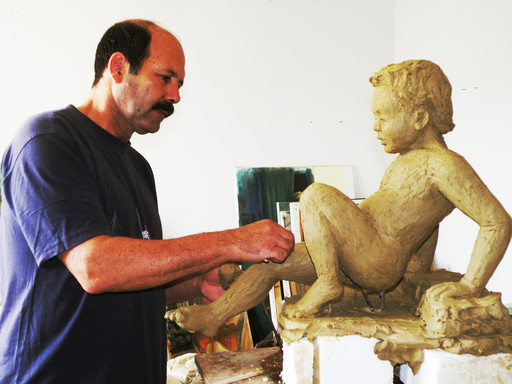
Shaul Baz’s exhibition at Office in Tel Aviv Gallery, “Poets’ Dreams,” features paintings on canvas, and sometimes on other surfaces, such as recycled wood, in acrylic paints, or in mixed media that combines acrylic. Presented next to them is a handful of painted aluminum reliefs. The titles of the works, all created in the past year, are mostly drawn from poems, primarily those by Yona Wallach and Sara Koy.
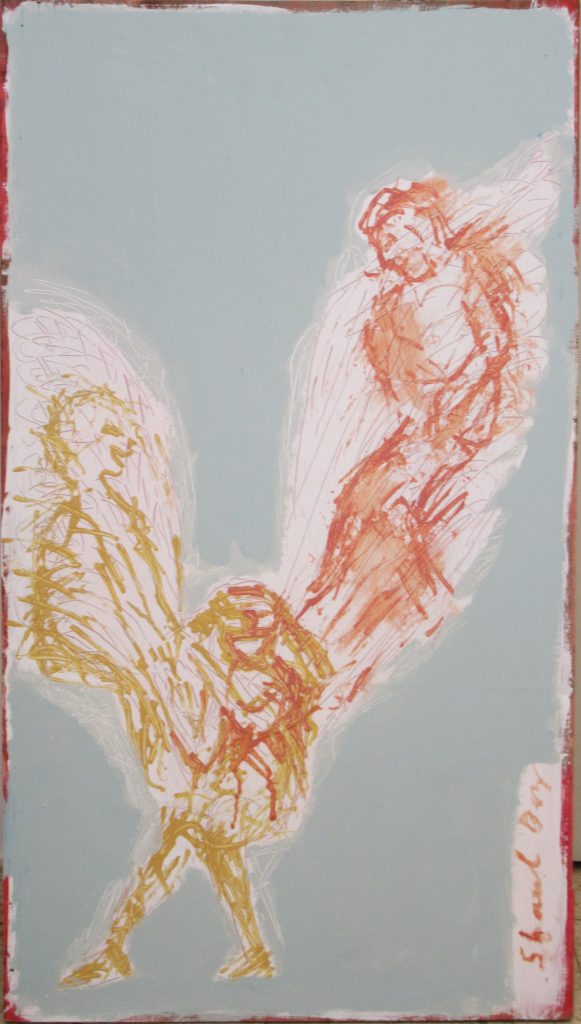
Jars
descend on the city
on thick cords
as if it were
a strange well
incredibly large
and alive
– Sara Koy, Well
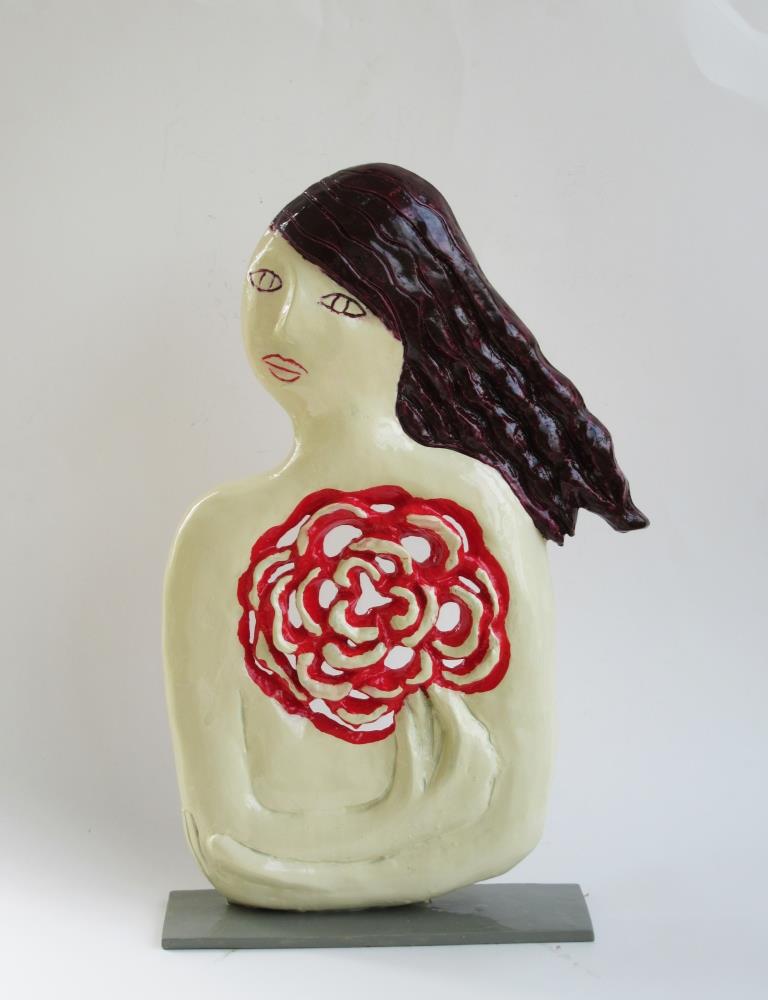
Baz acquired his artistic education in the early 1980s at the Avni Institute in Tel Aviv, where senior Israeli artists taught the basics of painting and sculpture. At the end of that decade he sought to broaden his education under two artists, graduates of painting academies in Russia: he initially studied with Jan Rauchwerger, and later, in the early 2000s, with Leonid Balaklav. Their academic impact on his work today is discernible in the deep strata of his paintings and in his lyrical abilities, which intensified over the years due to his love of Israeli poetry, and specifically the aforesaid two poets, Wallach and Koy, whose unique words masterfully illuminate his artworks with the sound of Hebrew, enriching his artistic language, which combines the Israeli lyrical abstract with academic gravity.
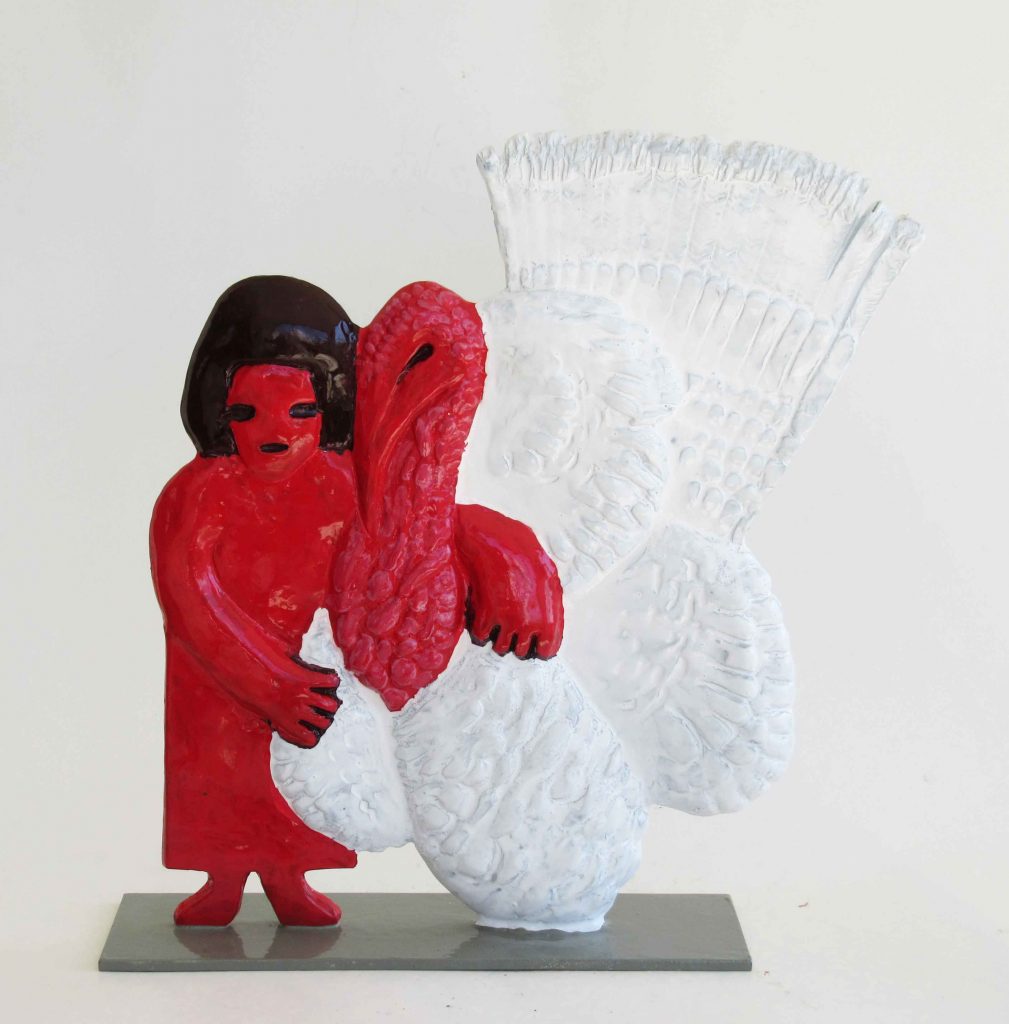
“The paintings usually start with a poem by a poet I like, such as Yona Wallach or Sara Koy. It serves as a point of departure for a search taking place on the canvas. One may say that my canvases are like poetic texts of visual associations. The world is hidden, revealed, and resonates behind transparent or opaque surfaces, on which I try to leave or create empty surfaces of calm,” Baz said.
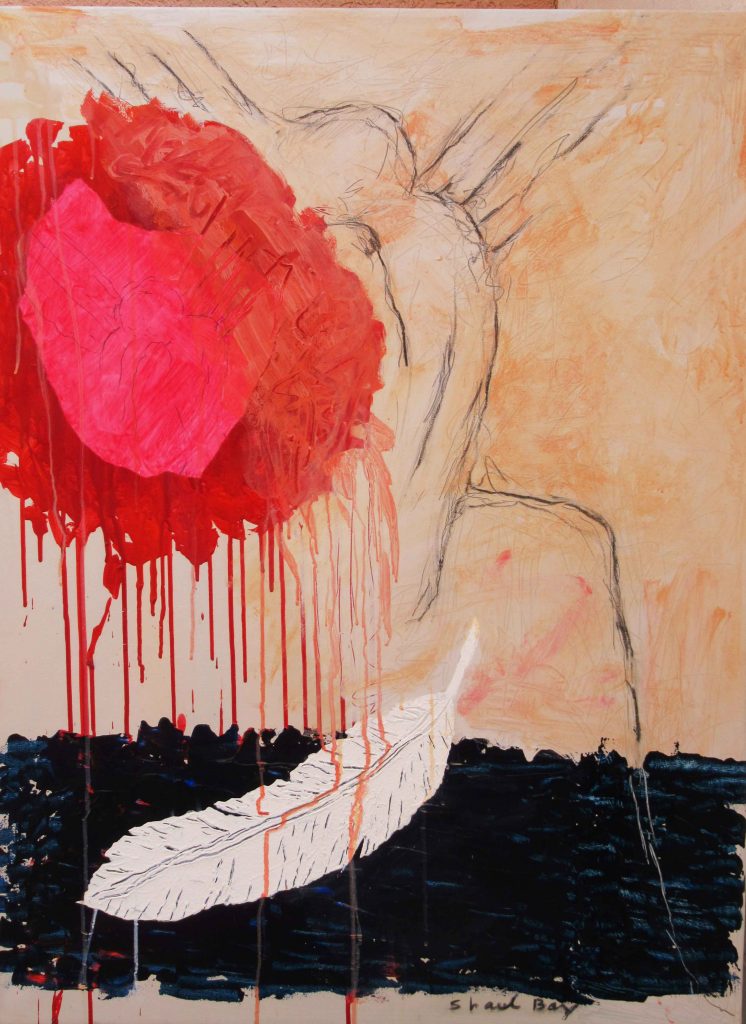
Shaul Baz was born in Kibbutz Mishmar HaEmek in 1958, and attended the educational institutions of Hashomer Hatza’ir movement, Shomria and Harei Ephraim. Lives and works in Jerusalem.
- UPDATE: Lebanese President Will Not Rule Out External Interference In Beirut Explosion
- Shin Bet Said To Have Secretly tracked Most Israelis’ Phones For Over 2.5 Years


